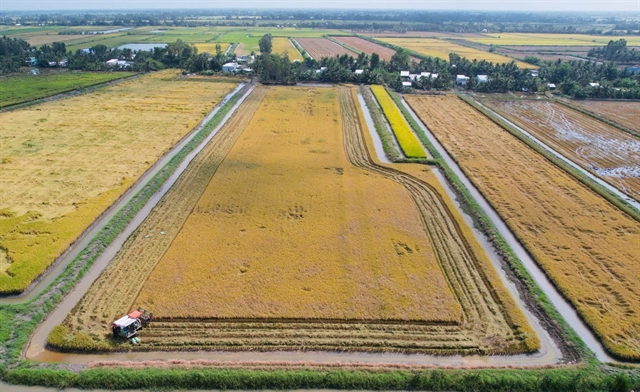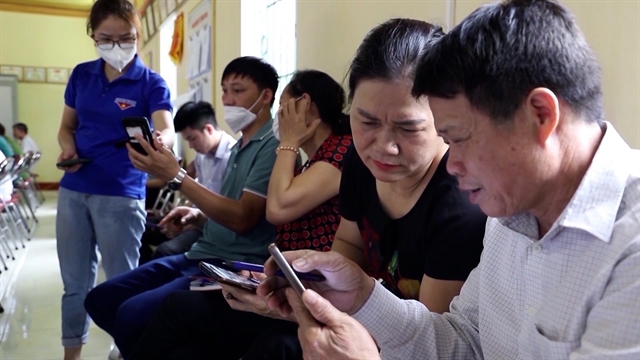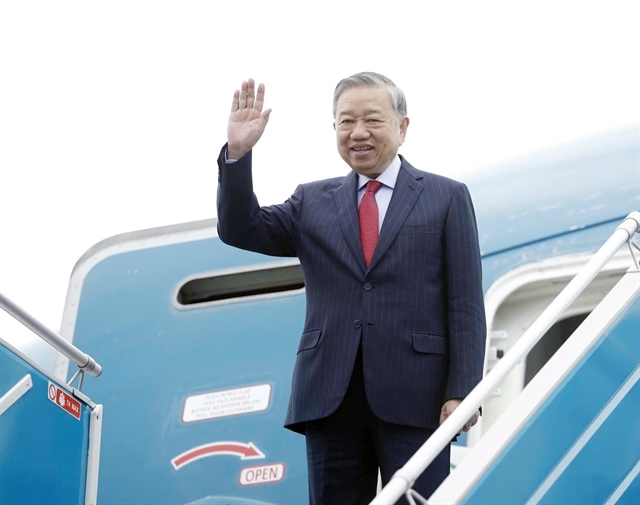 Society
Society


|
| Residents receive assistance in installing services on smartphones in Minh Bảo Commune, Yên Bái City, Yên Bái Province. — VNA/VNS Photo |
HÀ NỘI — The Ministry of Information and Communications (MIC) has submitted a proposal to the Prime Minister to adjust its support scheme under the public telecommunications service programme.
The proposal suggests reallocating the funds initially set aside for 400,000 tablets and using them instead to provide smartphones to low-income households.
This move comes as part of the ministry's ongoing efforts to accelerate the public telecommunications service programme, which aims to expand broadband internet access to disadvantaged areas, border regions and islands.
The programme also focuses on mobilising resources to extend services to hard-to-reach communities, including those in ethnic minority and mountainous areas.
Between 2021 and September 2024, approximately 3,310 villages were identified as lacking mobile broadband coverage. Of these, 2,141 villages are situated in areas supported by the programme, which focuses on regions with particularly difficult socio-economic conditions.
As of September 2024, nearly 2,549 villages had been connected to mobile telecommunications services, with 1,476 of these benefiting from the support of the programme.
However, 761 villages remain without mobile broadband coverage.
The ministry has outlined plans to extend services to 547 of these villages and is urging local authorities to collaborate with telecom companies to address additional coverage gaps.
MIC has approved a funding plan totalling more than VNĐ2,230 billion (nearly US$88 million) to support public telecommunications services from 2022 to 2024.
In 2022, telecom companies provided services worth VNĐ107.7 billion, helping around 195,000 poor and near-poor households access mobile services.
In 2023, the value of services provided increased significantly, with over 590,000 households receiving mobile services, worth an estimated VNĐ345.65 billion.
The programme also supported around 3,600 schools and health stations with fixed broadband internet, valued at VNĐ8.19 billion.
Contracts for 2024 have already been signed, and telecom companies are now implementing their expansion plans.
Under the original plan, the MIC had allocated 400,000 tablets to assist low-income households with online learning during the COVID-19 pandemic.
However, with the pandemic now under control and students returning to in-person classes, the ministry has recognised the need to reassess the policy.
The MIC also highlighted the challenges in implementing the programme due to gaps in the legal framework.
These challenges mainly relate to the tendering and contracting processes for telecom companies assigned to extend services to underserved areas.
To address these issues, the ministry is drafting a decree to provide legal clarity on the operations of the telecommunications service program. Once approved by the Prime Minister, this decree will resolve existing legal obstacles and enable more efficient support for telecom companies in expanding services to remote areas.
In addition, the ministry plans to propose further adjustments, including the shift in tablet support to smartphones, to better meet the evolving needs of disadvantaged communities. — VNS



.jpg)
